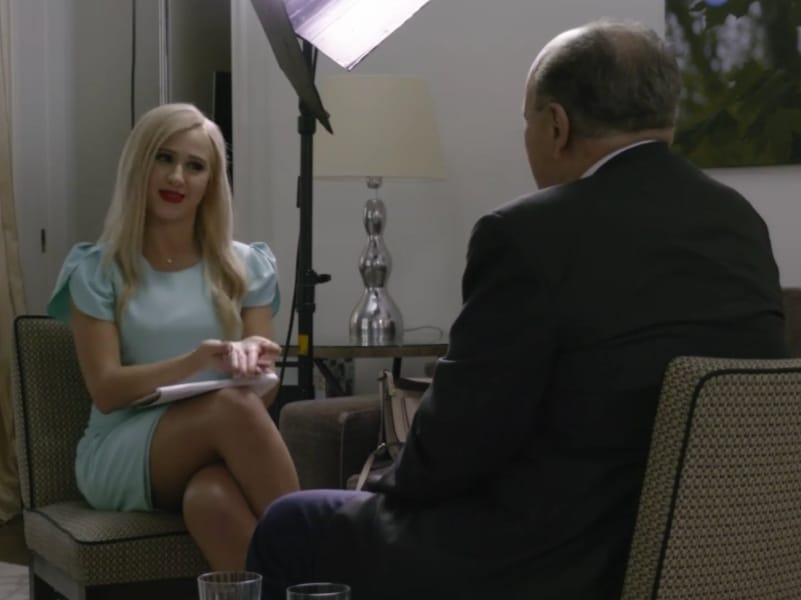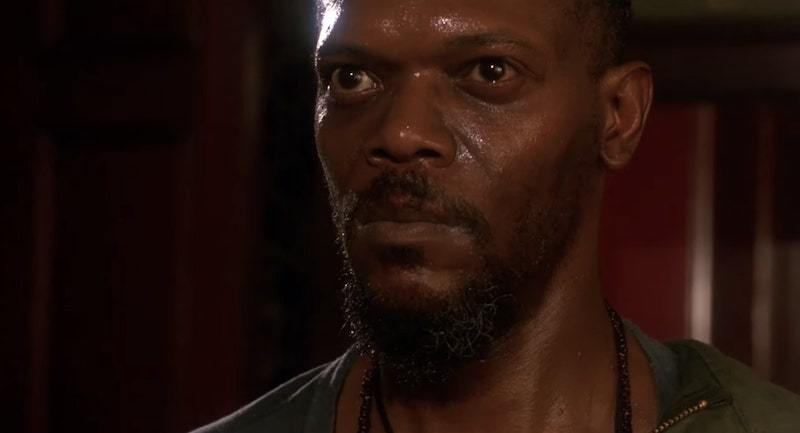#’Borat Subsequent Moviefilm’ Marks the Return of a Hero We Deserve

“#’Borat Subsequent Moviefilm’ Marks the Return of a Hero We Deserve”
To set the stage, let’s go back in time for a second. It’s 2006, social media is a baby deer finding its footing, and the funniest thing in the universe is a guy with a vaguely Russian sounding accent saying “MY WIFE.” Borat, the Kazakh reporter created by Sacha Baron Cohen, is on a cross-country road trip with the aim of understanding America. Through Borat’s oafish and tone-deaf inquiries about history and culture, the satire tackled women’s rights, racism, and foreign relations in the midst of a “war of terror.” It was side-splittingly funny, incisively critical, and nearly got its creator arrested.
In Borat, there’s an early shot that pans from the signage of Trump Tower in New York to Borat squatting and shitting in a bush. Cohen couldn’t have known — nor could any of us have known — that this would be the case, but in this shot, we find a startlingly on the nose segue into the world of 2020, a world that beckoned Borat’s return with Borat: Subsequent Moviefilm.
Fourteen years after the original film, we catch up with Borat imprisoned in a gulag for the crime of embarrassing his country. In an attempt to curry favor with the rest of the world and get on the good side of “Premier” Trump, Kazahkstan’s plan is to send Borat stateside once again to gift a celebrity monkey to Mike Pence. In a turn that also marks the single best decision made in the film’s production, in lieu of a monkey, we get Borat’s 15-year-old daughter Tutar (Maria Bakalova).
Borat’s original plan is to send his stowaway offspring back home, but fate intervenes and he realizes he can offer her as a gift to Pence. When that ends with security escorting them out of a hotel instead of holy matrimony, Borat and Tutar set their sights on another man for her to marry. In what immediately emerged as the talking point of the film, the plan is for the teenager to wed Rudy Giuliani.
The thrust of the narrative follows closely with Tutar’s journey to wannabe child bride. She gets a makeover and learns how to be a woman from an Instagram influencer sugar baby and a room full of Republican women. She discovers that women are not only legally allowed to drive, but intellectually capable of doing so. She emerges as the bleach blonde alt-right leader of an anti-mask rally. It isn’t hyperbole to say that Bakalova delivers one of the greatest comedic performances of all time, one that easily stands toe-to-toe with Cohen. She’s fearless in her commitment and makes thinking on her feet look effortless.
To the last point, thinking on their feet is a skill that is on full display from all involved. When the coronavirus pandemic hit in the middle of filming, the challenge was to regroup and pivot. Subsequent Moviefilm integrates the pandemic brilliantly, delivering one of the funniest scenes in the film when Borat takes the stage at a rally and landing a twist too good to be spoiled here.
Through all of this, Tutar’s presence inherently shapes the film in a way that distinguishes it from the first movie. It prevents it from feeling stale but it also solves a central problem: the fact that Borat is now a celebrity. When he starts getting recognized in public, the character dons various disguises and passes the torch of protagonist to his daughter. With the unknown Tutar leading the way, there’s less of a concern that the jig will be up when someone is recognized.
For reasons that go beyond Tutar’s inclusion, this film feels markedly different from its predecessor both in its content and its context. Maybe it’s the pointed political narrative (the film ends urging viewers to vote), maybe it’s the inescapable fact that this film will be discussed not with a few buddies sitting on a couch, but with the internet as a whole via social media, maybe it’s the equally surprising and inevitable development that Borat actually shows growth, but it’s hard to divorce Subsequent Moviefilm from all the extratextual baggage that goes with it.
Here, we have a conundrum. Generally speaking, I find it ill-advised to overly praise or problematize art based on the world around it. It’s not that art isn’t political — it is — but that ideas, themes, and meanings have to be allowed to gestate. The primary goal of art isn’t to tell us how to feel right now about everything else going in the world. It doesn’t owe us this.
And yet, watching the Borat sequel, it’s a challenge to not consider the stakes at play and the consequences of what’s captured on film.
It’s not a coincidence that in what is by and large a very funny movie (though nothing matches the naked hotel fight, what could?), the moments that don’t land end up being quite illuminating. When Borat bunkers down with QAnon conspiracy theorists, the film drags a touch and it feels like Cohen isn’t quite sure how to elevate the situation. When he asks them whether the coronavirus is worse than the Democrats, it’s almost cute to imagine a world in which it’s a shock that they answer no.
At a time when hateful and ludicrous conspiracy theories have hit the mainstream and when we’ve seen over and over again that there truly don’t seem to be consequences, does this hinder our ability to find comedy in exposing these actions?
When Rudy Giuliani finds himself alone in a hotel room with Tutar, he starts to get handsy with the 15-year-old (Bakalova, for the record, is 24, and I’m sure I’m not the only one who Googled that while watching the scene). While I don’t believe the film owes us consequences for this, all the incredulous laughs that came from observing Giuliani caught on camera were inevitably tinged by doubt that it actually matters. Maybe 14 years ago this would have ended a politician’s career or maybe it wouldn’t have, but it feels like repercussions have become increasingly few and far between when it comes to our leaders.
So, what we’re left with is a very nice comedy that ingeniously managed to roll with the punches of 2020 and deliver a sequel that far and away justifies its own existence as more than a cash-grab for all those involved. It’s also a sequel that comes with baggage and a complex process of enjoyment. It’s easy to laugh at and hard to watch without wondering whether the film should accomplish more than comedy, and what it means if it doesn’t.
Is that a criticism of this film specifically or more a comment on the abilities and constraints of art in our current moment? Some might lean towards the former but I’m far more inclined towards the latter. I’d rather have these questions and not know what to do with them than not have them at all. What can be agreed on is that Borat Subsequent Moviefilm will be easily forgotten.
NOT.
For forums sites go to Forum.BuradaBiliyorum.Com
If you want to read more Like this articles, you can visit our Social Media category.




